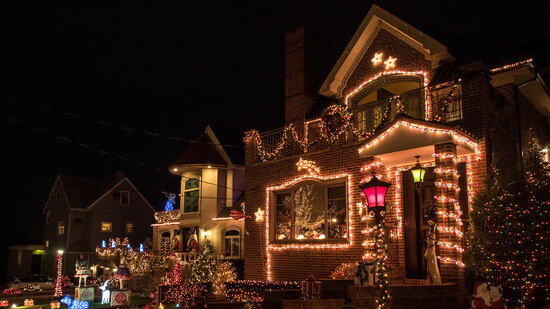On any given day, we turn our stoves on to fry a few eggs or crank up the heat on our griddles to flip some pancakes without a thought. At night, we automatically flick on the light switch so we don’t stumble in the dark or turn down the temperature if it gets too hot.
Yet most people take our electricity for granted. Today, at least 1.18 billion are “energy poor” and unable to use electricity according to the World Bank. Unfortunately, access to electricity is still a dream for many.
In Texas, we had a taste of what it feels like to be without electricity in February 2021, when winter storms caused a failure of the Texas power grid. “Locally, every year, people have mishaps that cut off their power, but they can’t afford to get it fixed,” reflects Bill Witty, owner of W3 Electric.
”For example, one time a Garland city council member reached out because an elderly couple in his district was without power for a week. We matched what was fundraised, resulting in $4000. Another time, a local community museum in McKinney had a tree fall on their power line, so we created a system to help raise funds for them too.”
Bill and his wife Jessica founded W3 Electric in 2019. “Our goal is to help twice as many people as we do now. The more communities we get involved in and the various new areas we explore (such as solar energy, or our apprenticeship training program), the more we grow our impact.”
W3’s emphasis on helping those in need comes into even sharper focus when the holidays roll around. This includes educating the community on the electrical dangers of holiday decorating (ranging from personal injury, such as electrical burns, to unforeseen damage to your home).
Here are W3’s top 10 safety tips for the holiday season:
- Having GFCI (ground fault circuit interrupters) protection is foundational to safety. GFCIs monitor electricity so if it runs through a person or if it runs into the ground, the GFCI will automatically shut off the current. GFCI protection is standard in all outdoor plugs, and in houses built in the 80s and onward.
- Never plug lights into a non-GFCI indoor plug.
- Use your intuition. Look for red flags, such as installers using tape to bind wires or leaving copper exposed. If it doesn’t look right, it probably isn’t.
- Check for frayed or damaged wires.
- Be aware of overloading your system. Distributing lights all around the perimeter of your house is normal; but if you’re adding more electricity-consuming features, such as multiple blow-up decorations or additional lights on trees, it’s wise to add a dedicated circuit.
- Avoid overloading extension cords.
- If the GFCI is constantly tripping, then it’s a problem. Ensure the reset button isn’t malfunctioning.
- To mitigate the risk of water shock, don’t run sprinklers with your Christmas lights on, and don’t leave the lights on when it’s raining.
- Be careful not to allow light bulbs to touch combustible material, such as plastics, pine needles, leaves, or grasses.
- Use a dry, wooden ladder when hanging holiday lights.
“Finding a company to hang your lights securely is simply nonnegotiable. You want to make sure the company you hire has employees who are drug-tested and licensed, and that the company itself has positive Google reviews and a slew of good referrals,” advises Jessica.
W3 stands for “Win-Win-Win”–for customers, employees, and community. “Electrical work fascinates me. I realize it’s my purpose,” says Bill. “Helping people by providing them safe options is my calling, and the gratification of a customer who says ‘thank you so much’ is the fuel that keeps motivating me.”
Electricity may not be the kind of blessing we are thankful for on a daily basis. But this holiday season, it is truly something to consider. To learn more about W3, visit www.callw3.com/plano or call 972-793-0733.
“The gratification of a customer who says ‘thank you so much’ is the fuel that keeps motivating me.”
